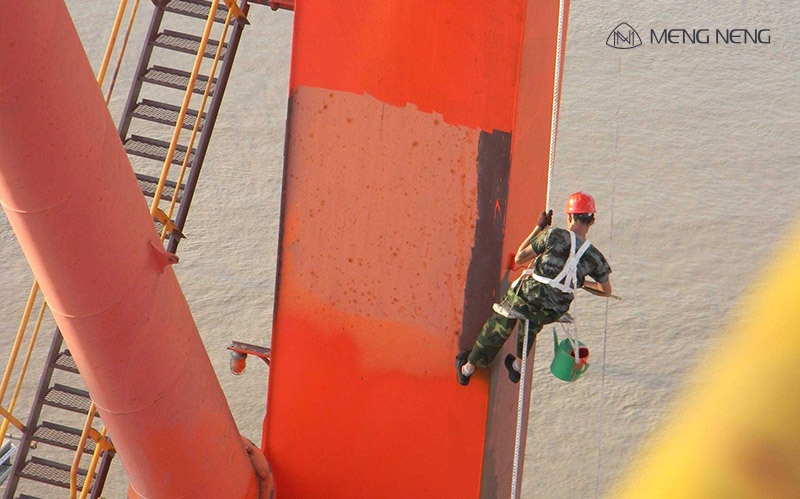What kind of coating won't peel off when sprayed on aluminum plates?
Significance of Aluminum Panel Coating
Aluminum panel coating not only changes the color of the surface for aesthetic purposes but also enhances its protective properties. However, paint peeling is a common issue when painting aluminum panels.

Reasons for Paint Peeling on Aluminum
The main reason for this is that the aluminum surface is very smooth and has a passivation layer with few active chemical bonds. (Here, we will explain bond energy. Bond energy is one of the key factors determining molecular activity. In chemistry, bond energy represents the strength of the chemical bond between atoms and is directly related to the stability and reactivity of the molecule. When the bond energy is high, the atomic bond is stronger, making the molecule more stable and less reactive.) The lack of active chemical bonds leads to poor adhesion between the paint and the aluminum, causing it to peel off. To address this issue, both surface coating processes and the selection of paint should be improved.
How Should the Surface of Aluminum Panels Be Treated?
One of the main reasons for paint peeling is improper surface treatment of the aluminum panels. If the surface is not adequately treated or does not meet standards, impurities such as oils, oxide layers, and rust will not be thoroughly removed, leading to poor adhesion between the coating and aluminum. Therefore, the surface treatment process must be strictly followed, and aluminum panels should undergo fine grinding and acid washing before painting to ensure a better adhesion of the topcoat and remove all impurities like oil, oxide layers, and rust.
The Impact of Coating Environment
Another cause of paint peeling is unsuitable coating environment. Environmental factors such as air temperature, relative humidity, and air pressure affect the adhesion of the coating. If the humidity is too high, the pressure too low, or the temperature is unsuitable, the adhesion of the coating will be severely affected, leading to peeling. Before coating, engineers should test the temperature and humidity on-site to determine if the conditions are suitable for operation.
Quality Issues with Coating Materials
If the coating material does not meet the required standards, it is another cause of paint peeling. What type of paint does not peel off? Currently, some low-quality paints on the market may not be resistant to corrosion, oxidation, or impact. After using these paints, the surface is prone to peeling, cracking, or breaking. Specialized paint should be used in such cases. In the anti-corrosion industry, Mengneng Coatings has introduced a special paint for aluminum surfaces. This paint forms a flexible and well-adhered film after curing, with excellent wear resistance and impact resistance. It can cure even at -10°C, meets domestic environmental protection standards, and complies with EU standards. It has been applied in various large projects, including fireproof aluminum panels and galvanized pipe coatings, offering excellent adhesion.
Third-Party Testing Report
According to the latest third-party testing report, the adhesion of this paint exceeds 5MPa, reaching 13MPa. Industry professionals, upon seeing the 13MPa report, will know how impressive this adhesion is.
Impact of Design or Construction Issues
In some cases, improper design or construction can also lead to paint peeling. Errors in coating design processes or mismatched construction can weaken the adhesion of the coating to the aluminum, causing it to peel. It is important to consult experienced professionals to design proper coating processes to prevent such problems.

Conclusion
In conclusion, the main causes of paint peeling on aluminum are improper surface treatment, unsuitable coating environment, poor coating material quality, and improper design or construction. To avoid paint peeling, it is essential to choose high-quality coating materials, follow proper surface treatment and coating environment requirements, and design and construct properly based on the actual conditions.